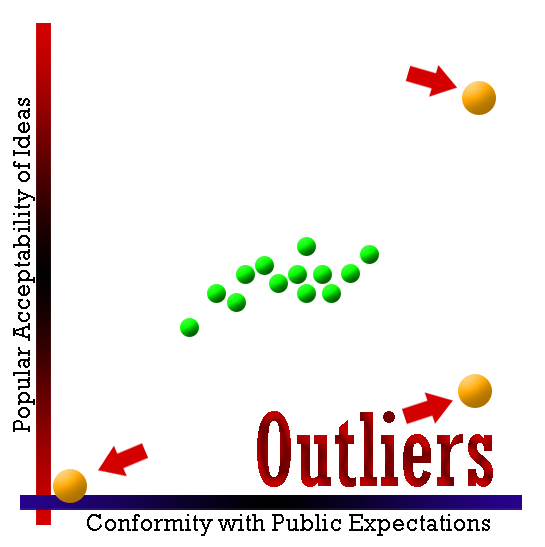SUMMARY
This is AI generated summarization, which may have errors. For context, always refer to the full article.
 Let me get some things out of the way first.
Let me get some things out of the way first.
- There is no official Commission on Elections (Comelec) move to strike the word “nuisance” out of the law or Comelec-issued guidelines, rules, or regulations.
- My dislike for the word “nuisance,” as far as I can tell, has not been elevated to the level of Comelec policy.
- And, ultimately, my decision to not use this word any longer, except within the strictest parameters set by law, is my decision alone.
Having said all that, here’s what I think of the word nuisance, as it is applied to certain individuals filing their certificates of candidacy (COCs): I think it is unfair, I think it is offensive, and – acknowledging the reasons why that word gained so much currency in the first place – I think we should find a better word to use in its place.
Unfair
Under Comelec rules – which are based on law – the word “nuisance” is applied to those candidates who have been found by the Comelec to have “put the election process in mockery or disrepute or to cause confusion among the voters by the similarity of the names of the registered candidates or who by other acts or circumstances is clearly demonstrated to have no bona fide intention to run for the office for which the certificate of candidacy has been filed, thus preventing a faithful determination of the true will of the electorate (Section 1, Resolution 9523).”
The operative concept being that there should first be a petition filed to declare a COC filer a nuisance – either by a fellow filer or by the Comelec itself – and that a hearing was conducted where the person accused of being a nuisance gets a chance to prove that he is not, and that after taking all that into consideration, the Comelec still thinks that this accused person’s candidacy will, somehow, prevent a true determination of the will of the electorate.
By this fact alone, it is clear that calling a person a nuisance candidate before he’s been given due process is all kinds of unfair. In fact, it is exactly this kind of labeling that we try to discourage when we remind people – sometimes, self-righteously – that they ought not to judge a book by its cover.
The problem is that it is very difficult to refrain from using the word “nuisance” as a pejorative – an insult. The fact is, the word is technically just a characterization of the person’s candidacy, rather than a pronouncement on his person, e.g., when the Comelec rules against a person in this context, it is the candidacy that is declared a nuisance, not the candidate himself. And this is the reason why I think calling these candidates nuisances is not just unfair, but also offensive.
Offensive
“But wait!” some people would say. “Have you heard their plans? Their plans are outrageous!”
There is no denying that some of the plans propounded by these filers are just flat-out ridiculous. And not just their plans either. There are some whose claims about themselves are clearly insane. Nevertheless, this does not give us license to ridicule them or trivialize their beliefs. After all, if we’re being brutally frank about it, some of our most deeply held truths can just as easily be ridiculed by others who don’t share them. At bottom, it sometimes seems that the dividing line between faith and insanity is mere consensus.
Even without going into the metaphysics of things, however, a strong enough case can be made for simple decency. These filers, as insane or comical as they may seem to us, are beings possessed of human dignity indistinguishable from our own which we fiercely defend. In fact, when it is done to us, we’ve no qualms calling it “bullying.”
We shouldn’t have to agree with their ideas to be able to respect their dignity. Just as much as we expect people not to ridicule us for what we believe, no matter how comical those beliefs might seem to them, so should we hold ourselves to the same standard of restraint.
And an indispensable part of that restraint is the effort we exert towards finding a better word by which to refer to this unique class of COC filers.
A new word
Don’t get me wrong. Once the Comelec has heard the case against them and has come to the determination that the candidacy is a nuisance, I have no problem referring to them as nuisance candidates. It is in that brief but most publicized period between their filing of their COC and the Comelec’s determination, that I think a different word be used.
So, what word?
In recent days, reporters have taken the initiative to refrain from using the word “nuisance.” This is a welcome development, of course, but it has left them struggling to find suitable alternatives. At first, “independent candidates” was used. However, it quickly became apparent that this was grossly inaccurate since there have been a lot of independent candidates whose candidacies would never, not in a hundred years, be characterized as being nuisances.
As a result, I’ve been compiling a list of possible alternatives. So far, I have:
- colorful;
- unique;
- touched; and
- outliers
Colorful is, far and away, the leading contender in this search of mine. Already in more or less common usage, this euphemism is nevertheless often used with a chuckle – just so the listener or the reader is clear that we mean colorful in the not so flattering way that we would use it to describe, say, a peacock’s tail.
Unique is nice and non-committal. After all, there are a countless number of ways one might be considered unique. Thus, it lacks a certain degree of accuracy.
Touched was suggested to me, as a polite way of referring to those who have been “touched by the moon,” e.g., slightly mentally unbalanced, somewhat insane. Despite the new age-y feel of this word, the thought of going on-air and calling someone slightly nuts leaves me cold.
Outlier – now there’s a word.
I first came across this term in some statistics book I read in college, and it referred to “an observation that is numerically distant from other data.” Many years later, Malcom Gladwell wrote the book Outliers, where he described how the really successful people are actually distinguished from their peers by circumstances that are unique to them. He cites the example of hockey players being born earlier in the year as being more likely to become successful than those born the same year but during the latter months. He also attributes Bill Gates’ success to his fortunate access to a computer – at a time when very few people even knew exactly what a computer was – at which he eventually accumulated 10,000 hours of programming experience.
Admittedly, the ones I wish to apply the terms to are not all runaway success stories, so I’d probably have to leave Gladwell alone and simply evoke the original – value neutral – definition of the term. An outlier is someone who is “distant” from the rest of the field.
Look.

The vertical axis represents a kind of spectrum for publicly accepted ideas and theories. The dark middle would represent mainstream ideas such as, I don’t know, the permanence of Torrens titles, or that economics defines the course of history. The brighter colored ends would then represent things like belief in aliens or that some malls have ginormous snakes in their basements.
The horizontal axis – conformity with public expectations – would then be interpreted similarly. The darker middle represents plain vanilla people and politicians. Middle of the road types. The brighter ends stand for the more colorful (there’s that word again) people who stretch the boundaries of society’s ability to keep a straight face.
Most candidates are represented by the green dots that cluster along the intersection of normally accepted ideas (call it consensus, if you like) and personalities that are deemed unremarkable.
With this kind of visualization, outliers are going to be the orange ones that stray far from the cluster of greens and inhabit the outer edges of what is deemed acceptable and unremarkable. Does that sound familiar at all?
I think it makes a lot of sense to call these candidates outliers, simply because that is – in fact – what they are. They represent ideas that most people consider too outrageous, and they have personalities that border on the gleefully insane. This nomenclature is not judgmental either, inasmuch as it derives its characterization not from any one arbitrary standard, but from a kind of standard deviation way of looking at society’s over-all predispositions and biases. I also kinda like that it is absolutely unscientific. Of course, to be honest, I imagine that some will think that I’ve strayed too far into the poppy fields of political correctness. But since I don’t go around calling people vertically-challenged when I mean that they are short, I suppose I’ll survive.
So, there’s my proposed new word, folks. Outliers. – Rappler.com
(James Jimenez is the director of the Comelec Education and Information Department. He is also the poll body’s official spokesperson. This piece, which originally appeared on mycomelec.tv to express his personal views, has been republished on Rappler with his permission.)
Add a comment
How does this make you feel?
There are no comments yet. Add your comment to start the conversation.